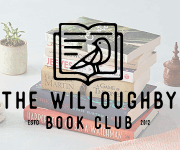 The Book of Broken Hearts by Sarah Ockler • contains 357 pages • published 21. May 2013 by Simon Pulse • classified as Contemporary, Romance, Young Adult • obtained through library • read as hardcover • shelve on Goodreads
The Book of Broken Hearts by Sarah Ockler • contains 357 pages • published 21. May 2013 by Simon Pulse • classified as Contemporary, Romance, Young Adult • obtained through library • read as hardcover • shelve on Goodreads • shelve on The StoryGraph
Synopsis:
Jude has learned a lot from her older sisters, but the most important thing is this: The Vargas brothers are notorious heartbreakers. She’s seen the tears and disasters that dating a Vargas boy can cause, and she swore an oath—with candles and a contract and everything—to never have anything to do with one.
Now Jude is the only sister still living at home, and she’s spending the summer helping her ailing father restore his vintage motorcycle—which means hiring a mechanic to help out. Is it Jude’s fault he happens to be cute? And surprisingly sweet? And a Vargas?
Jude tells herself it’s strictly bike business with Emilio. Her sisters will never find out, and Jude can spot those flirty little Vargas tricks a mile away—no way would she fall for them. But Jude’s defenses are crumbling, and if history is destined to repeat itself, she’s speeding toward some serious heartbreak…unless her sisters were wrong?
Jude may have taken an oath, but she’s beginning to think that when it comes to love, some promises might be worth breaking.
By the time I finished reading The Book of Broken Hearts I was in tears but smiling right through them. You see, this is the first time I read a book by Sarah Ockler, so up to now I’ve had to just take others for their word that her books are well-written. At first I wasn’t so sure about Jude. Neither was I sure how the conflict about the Vargas boys would hold up for long. Amazingly, it did. Alongside other issues, of course. And somehow, everything combined had me go through an emotional roller coaster ride. There were so many different moments that had me react differently. Let me break down the reactions:
Laughter. Jude is kind of humorous. Her voice can be rather witty when things are light-hearted. Her attention to mannerisms had me laughing when she called out people on practising their moves in front a mirror. She also has comebacks that puts boys in their place.
Smirks. Hand-me-downs are common for younger siblings but the way Jude talks about such mundane things in the grand context of the plot had me smirking. That and every other instance that reminded me of my own family. Or remarks about the difficulties of being a vegetarian and Argentinian. I get flak all the time about how my diet doesn’t reflect my own ethnic backgrounds.
Cringing. There where also moments that had me cringing in disgust, asking how anyone could even do such a thing. The ritual of the sisters’ oath. Eeew. I’ve never been one for initiation rites and the likes. That is all I can say. Don’t want to spoil the good parts.
Confusion. People are confusing. One moment they do or say one thing and the next they do something different altogether. I empathized with Jude. Emilio isn’t the only one sending mixed signals. Her best friends too added to the tensions of the plot.
Sadness. Central to the plot is Jude’s father’s early onset of Alzheimer’s Disease. It’s hard watching loved ones deteriorate like that. No matter how much we wish we could stop time, our parents are growing old, just as we have grown up. Ockler explores very well what it means to have limited time left with a father who is so dear to us.
Fear. What does the future hold? Struggling with whether we want to know, or not at all, when given the choice isn’t easy. It’s no wonder Jude is so fixated on the past, trying to bring back her father’s memories. His Harley means so much to him and restoring it over the summer might just be the answer. Yet no matter what, there always is the underlying fear of having to let go.
Bitterness. In the face of her father’s terminal illness, Jude doesn’t evade bitterness either. As patient as she is, choosing her father over all her other activities over her summer holidays, she still experiences bitterness. Death and illness are the last things she wants to deal with.
Looking at this whole range of reactions and emotions, I think it’s clear that this book is a good mix of light and heavy reading. It is not so heavy that it should get anyone down and completely disillusioned about life while not so light it borders on fluff.
One thing I especially liked was the portrayal of Alzheimer’s. It wasn’t a matter simply of whether Jude’s father was healthy or sick. It was about the progression and varying degrees. One person with Alzheimer’s is not the same as the next. That, I think, was what made reading about Jude’s summer so interesting. Then again, I’m a sociology major, so no ills of society are ever completely black. They always come in grey tones.
